职业体验报告模板
 职业生涯发展指导课
职业生涯发展指导课
职业体验报告
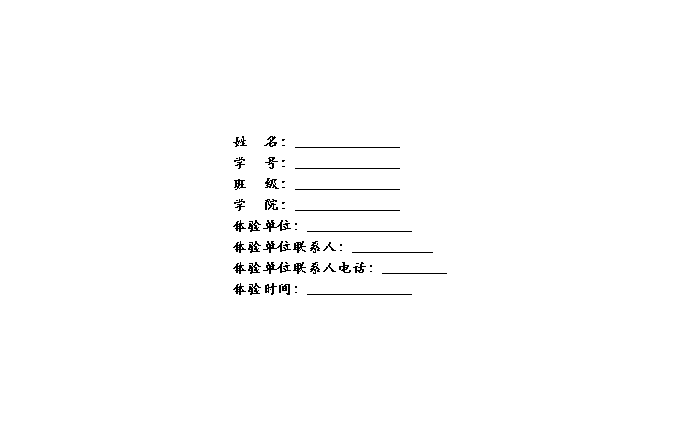
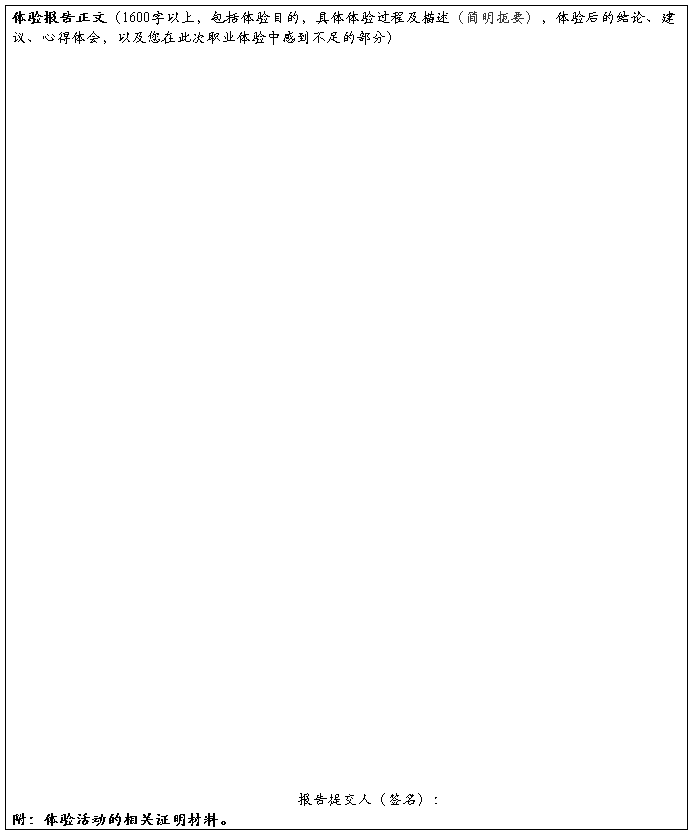
第二篇:20xx级亲情体验报告模板-英文
ⅠFamilyship Practicum
Ⅰ-1 Assignment requirement and description of the
Familyship Practicum Report
The assignment consists of two parts, namely, Q / A and the Familyship Practicum reports. Assignment submission time is within one week after the winter break of freshman year. Assignment is first submitted to the KCP partner university office, and then forward to KCP Shanghai Office.
1.Q/A
This Q/A includes 17 questions, please see the template.
Be sure to answer questions with focus on personal experiences, the answer content need to be closely related to personal life, learning, work, and please do not relate to impersonal content.
Please answer in simple terms, but the content should be specific and do not use too many adjectives and descriptive words.
Every question will have to apply textbook and at least one extra-curricular information to answer, please pay special attention, that to use any books or data content in the answer, the source origin of the five sections need to be specified, including: (1) author, ( 2) The articles or title, (3) published in publishing house, (4), year of publication, (5) page (for example: Michael T.C. Hwang, Career Planning - Experiential Learning [M]. Beijing: Higher Education Press. 2009: 396 -398.). Focus on answering questions by puting forward the idea of creativity.
All questions please answer them in Chinese, but you are asked to do two pages English summary. Every question answered please attach a photo, which could be an individual, landscape, or other information you think can best reflect the theme of your answer.
2. Familyship Practicum Report
Camping together with your parents, doing housework or taking care of their grandparents and helping them feet, hair, and chating with them and so on, to record these processes, the details and your experience harvesting.
2.1 Report Guidelines:
2.1.1 Choose a different content according to your own experience and share with
your family your experience and gains.
2.1.2 Experiencing in the familyship is required to complete the course with at least
five diaries and 2 page summary reports.
2.1.3 There must be an everyday experience photo attached to each diary. Photos must
be taken during the experience, and it could be yourself or your colleague with
you. In addition, please provide the family information, such as her / his phone,
email, major and grade, etc. and finally he/she has to sign for confirmation.
2.2 Writing Format
2.2.1 Cover: assignment title. Fill in their Chinese name, English name, Keuka ID
number, the name of the school, college, class, admission date, expected
graduation date, assignment submission date, guidance counselor
Revised on Feb. 25, 2010
recommendation grade (assessment criteria see 2.4.1, please use the A, A-, B +,
B, B-, C +, C, C-, D +, D, D-, F), and Dean stamp.
2.2.2 Assignment need to be carefully proofread regarding grammar and spelling
before submitting, and need to be printed as Song font in order to read. Please
refer to the specification format printing. Printed assignment should have
standard covers and page number. Those not in standard format will be
returned, and students should submit the electronic and printed versions to the
guidance counselor within the time required.
2.2.3 English format requirements: Please use Arial font, the title with 18 bold font, text
with 12 type size, 1.5 line spacing. Text graphics should be written horizontally
from left to right horizontal, text all-pass column editor.
2.2.4 Chinese format requirements: Please use Song font, bold font for headings, IV
font size, text with small IV font size, 1.5 line spacing. Text graphics should be
written horizontally from left to right horizontal, text all-pass column editor.
2.2.5 Printed version and electronic version of the assignment must be clear, clean and
tidy. Print all in A4 paper.
2.3 Writing Methods
Aanalysis is encouraged for the students to write the report, in particular the IDEA method. Special reports conclusions, recommendations, and experience, or you find defects in this part of the experience, such as the unfinished part, or because of certain factors can not be completed, write the specific factors.
Webmost want to see is creative thinking of the students.
(1)S——Strength, what and where is the strength?
(2)W——Weakness, what and where is the weakness?
(3)O——Opportunity, what and where is the opportunity?
(4)C——Challenge, what and where is the challenge?
4.A——Action. Make cost analysis and risk analysis according to the chedule
2.4 Requirement and writing guide of Experience forms and Experience Confirmation Form
2.4.1 Experience Contract
Student personal information. Including name, Keuka ID number, college, major, admission
year, expected year of graduation, address during the experience, telephone number and E-mail address.
Experience compay information. Including: company/organization name, address, instructor
or department head’s name, telephone, fax, E-mail address, etc. so that we can contact when evaluating students’ report. Students should write accurate and complete
information, if the information is incorrect or false resulting in can not geting in touch with the experience department, students need to be responsible for the consequences, such as the failure of the course, and thus lead to not be able to graduate, etc.
Experience Target. Write one or two sentence to describe your desired target, such as: (1)
decide whether education is what I want to pursue; (2) as a volunteer in the medical institutions to learn the knowledge of AIDS; (3) understand myself, my own strengths and weaknesses, try to have a self-aided trip.
Experience Purpose. List your experience desired results, you would like to develop your
skills, knowledge, behavior, value, etc.? Experience purpose need to support the experience target, but must be measurable. Make use of verbs, such as: prove, write, teach, develop, set up, design and analyze. Experience purpose shall be quantified (for example: teach three classes, write 4 press releases, etc.) In the experience, the purpose adjustment is permitted, as long as the guidance counselor agrees.
Experience Activities. Means the experience you need to doin a day, which should support
experience purpose. For example: answering public questions, counseling, analysis of
2 Revised on Feb. 25, 2010
data, to take care of patients. In the experience, the activity adjustment is permitted, as long as the guidance counselor agrees.
Experience Evaluation.
Student Signature.
Instructor assessment, give proposed grade and sign. KCP partner university counselor
make evaluation, give proposed grade, recommend excellent students, and gives recommendation reasons; who could not meet eligibility requirements, and give
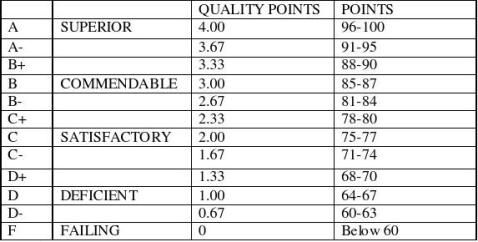
Experience Company Head Signature.
KCP instructor Signature.
In above 11 elements, (1) " Experience Company Head Signature " require the
handwritten signatures of responsible person in the company, (2) " KCP Instructor assessment, give proposed grade and sign, Dean Signature, KCP instructor
Signature" need to be signed by guidance teachers, Dean, KCP teachers, and the rest are subject to individual students to fill out.
2.4.2 Experience Company Evaluation Form
Filled by the responsible person of experience company. The content can be electronic, but the signature must be handwritten.
If the responsible person does not understand English, then fill out in Chinese, the student need to translate that into English by the students fill in the English template. Experience company must stamp on the cover the company seal; Note: familyship and community experience, you can not seal.
2.4.3 Experience Diary and photos
2.4.4 Experience Report
Please refer to The Model.
3. The relevant supporting documents
Materials that can prove that you carefully complete this personal experience, which can be reflected in the report or verbal exchanges (with the guidance teacher's discussion) , company responsible person’s evaluation, provident of you job performance.
3 Revised on Feb. 25, 2010
4. Print version binding sequence
4.1 Assignment Overall Cover
4.2 Q / A Cover (Note: prepare by yourself)
4.3Q / A (mainly in Chinese, 2 pages of English summary)
4.4 Familyship Experience Report Cover (Note: prepare by yourself)
4.5 Experience Contract (Form 1)
4.6 Experience Company Evaluation Form (Form2)
4.7 diary and photographs (Form3)
4.8 Experience Report (Form4)
5. PPT and IDVD
5.1 PPT: make your Q / A answers and the actual experience process, feelings, understandings and harvesting, as well as photos to a PPT, there’s no requirement to the number of pages and format, as long as you can present the theme of your assignment, the others depend the students tocreativity, the more creative the better!
After you make a good color print and submitted together with the above operations.
5.2 IDVD: shoot a vedio for the Q / A answers and the actual experience feelings, awareness, and the requirements are the same as the PPT, no standard format and time, free play, and strive for more creative!
The PPT and IDVD are optional for familyship, club, non-profit, profit reports; but they are required for career designing PPT and IDVD!
6. Electronic version Assignment Submission
6.1 Q / A and Familyship Practicum Report
6.2 PPT
6.3 IDVD
Please put above three into one folder for each student, name with the student’s Keuka ID
number and Chinese name, and put one class’s assignments into one disc. It should be submitted to KCP Shanghai Office together with the paper version.
* please try to use simple sentences to express the desired content, and be sure not to use translation software; please use your own words, and not to copy from the network or written information. Once above found in your assignment, it will lead to a Zero in the score.
Ⅰ-2 The model of the Familyship Practicum Report
4 Revised on Feb. 25, 2010
Cover page
FP401-Ⅱ Experiential Learning
Familyship Practicum Report
Name in Chinese: Name in English: Given Name,
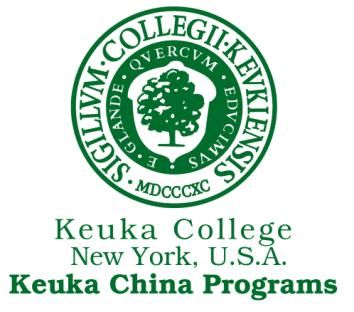
Family Name
Keuka ID Number:Chinese Partner University:Class:Email or QQ: Phone: :
Expected Date of Graduation:Date Submitted:Proposed Score by Advisor: Signature of Dean: Signature of Instructor:
5 Revised on Feb. 25, 2010
Part one:Q/A
Please read the textbook and answer questions. Notice:
1. The textbook:
(1)Michael T.C. Hwang. Career Management and Experiential Learning. Beijing: Higher education press. 2009.
2. When answering each question:
(1)Please extract a sentence or a paragraph from the above two books and indicate the source, including the author, name of the book, publishing company, date
publication, page.
(2)Please extract a sentence or a paragraph from other publications, such as books, literature or thesis, and indicate the source, including the author, name of the book, publishing company, date of publication, page; if you extract from internet, please indicate the website and website address.
(3)Write down your feeling and understanding using your own words (without any modifier or consideration, with little adjective).
Question:
1. In addition to the knowledge on career and career management from “Career
Management and Experiential Learning”, can you find other different knowledge from other publications and internet? What are they? Which do you most agree with from the book and from what you have found? Why? Please share your personal idea with other classmates. (At least mention one school of thought)
2. What is traditional learning? What is experiential learning? Please compare their differences based on your learning experience.
3. Share with classmates your feelings on the six stages of life development in this
section. And what about your expectations for your Youthful Adulthood, Middle Age and Senior stages?
4. What is your understanding of spiritual beliefs after reading this section? Do you have
spiritual beliefs? If yes, why do you have it? If not, what credo of the spiritual belief do you most agree with?
5. How do you understand life after you learn about the concept of life? How to respect and appreciate life? Please talk about your understanding.
6. How do you explain the concept of “I”? How do you see your own “I”? Please think back to the past and review how early life experience influenced your own self-concept.
6 Revised on Feb. 25, 2010
7. Some people always complain, “it is really hard to communicate with some people!” Have you ever been in this kind of situation? So why does this thing happen? And how can you communicate better? Please explain it according to your or others’ experience.
8. Collect some allegories, stories or real cases on the positive and negative influence of pressure, and share with everyone.
9. Please search for and collect some poems or adages about time , and list at least five
of them. Talk about your understanding towards time.
10. Please search for some other definitions on leisure besides what we have mentioned above; and write down your own understanding towards leisure. Do you have any idea about other function of leisure besides what we have mentioned above? What is the best function of leisure for you?
11. How do you understand “personal finance”? Can you think of other types of financing besides personal finance? Suppose you only have 100 RMB, so how do you use 100RMB to live for school, living, and working in a week?
12. For the concepts of mental health mentioned in this book, which point of view do you most agree with? Why? Or do you have other ideas? Please share with everyone. The criteria of mental health differ from era to era, country to country, nation to nation; in addition to the criteria listed in this book, please list more than two other criteria from other eras and regions.
13. Some people said that, in addition to employment, occupation, entrepreneurship, profession, professional aspiration, there should also be a “jobless” phase, which refers to the stage before employment and after retirement. How do you see this kind of saying?
14. What interests do I have? How can I foster or further develop my interests? What is the relationship between my interests and my future career development? (Personal interests should be mentioned in detail, especially at work). What abilities do I have? How do I make use of them? What are the abilities that I need but still lack? Do I have any undiscovered potential ability? How does it matter whether my abilities are strong or weak, and how does it influence my future career development? What are the jobs related to my abilities? What jobs are related to my ability? What values do I think are important? What values are important for me personally? And what values are not that important for me personally? How much do my career values relate to my future career development? In the course of growing up, what important people (like parents or teachers) or events influenced me deeply? How is my character relevant to my future career development? What is my ideal life style? And what are the differences with the present one?
7 Revised on Feb. 25, 2010
15. How do you understand “holistic education”? Which points of view do you agree with? Or do you have your own understanding?
16. What other definitions on lifelong learning can you find out besides what it mentioned in this book? Which one do you most agree with? Why? With regard to the background of how lifelong learning came into being, do you agree with it? Why? Are other types of lifelong learning besides what we have mentioned? What are they? We have seen the implementation of lifelong education in countries all over the world from this book, so what about in China? Please search for related materials and list out for comparison with other countries.
17. What preparation do you need to have before doing practicum? How do you understand familial affection practicum? Please discuss it in light of reality.
8 Revised on Feb. 25, 2010
Part two: practicum report
FIELD PERIOD LEARNING CONTRACT
1. STUDENT INFORMATION
1.1 NAME:
1.2 STUDENT ID NUMBER:
1.3 LEARNING SITE:
1.4 MAJOR:
1.5 CLASS ENTERING YEAR:
1.6 EXPECTATIION FOR GRADUATION:
1.7 ADDRESS DURING FIELD PERIOD:
1.8 PHONE NUMBER DURING FIELD PERIOD:
1.9 E-MAIL:
2. PLACEMENT INFORMATION
2.1 ORGANIZATION / AGENCY& DEPT:
2.2 ADDRESS:
2.3 PHONE NUMBER:
2.4 FAX:
2.5 E-MAIL:
2.6 FIELD PERIOD SUPERVISOR’S NAME:
2.7 FIELD PERIOD SUPERVISOR’S TITLE:
3.YOUR FIELD PERIOD TITLE:
4.FIELD PERIOD TYPE (Please use “√” to cross the correct one.)
4.1 PROFIT FIELD PERIOD
4.2 NON-PROFIT FIELD PERIOD
4.3 CAREER FIELD PERIOD
5. HAVE YOU WORKED, VOLUNTEERED , GONE TO SCHOOL OR DONE A FIELD
PERIOD AT YOUR PROPOSED SITE WITHIN THE LAST THREE YEARS(circle one)
(If YES, write a brief explanation of how this experience is different or builds upon
your previous experience at this site.)
6. LEARNING GOAL(S):
9 Revised on Feb. 25, 2010
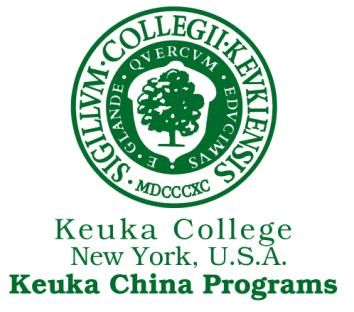
8. ACTIVITIES:
9. EVALUATION (all are required)
9.1Journal
9.2 Written report/summary
9.3 Oral discussion
9.4 Review of the placement site supervisor’s evaluation
9.5 Unique documentation (describe): Scrapbook
The Five Evaluation Aspects mentioned above could be regarded as part of the
requirements for the faculty’s comments.
10. STUDENT SIGNATURE:
11.ADVISOR SIGNATURE:: COMMENTS:
12.DEAN SIGNATURE:: COMMENTS:
13.SUPERVISOR SIGNATURE:DATE: COMMENTS:
14. INSTRUCTOR SIGNATURE: DATE: COMMENTS:
Keuka College
Keuka China Programs
Phone:021-32522052 Fax:021-32522051 E-mail: hwang@keuka.edu
10 Revised on Feb. 25, 2010
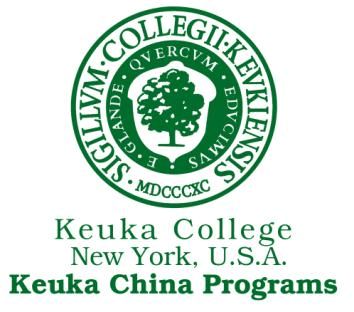
Form2
Date of Evaluation: Name of Student:
FIELD PERIOD SUPERVISOR EVALUATION
Title of Supervisor: Supervisor E-mail:
The Field Period at Keuka College is designed to supplement the student's
campus academic program. A report of the student's experience is necessary for the student's complete record. Please complete and return this evaluation form upon the conclusion of the student's Field Period to:
Dean/Professor University Address: E-mail:
Signature of Field Period Supervisor
SEAL of Enterprise
Thank you for completing the attached evaluation form.
11
Revised on Feb. 25, 2010
1. The student and I have discussed the Field Period Learning Contract. Yes
2. Please describe the major activities the student performed to achieve the objectives
identified in the Field Period Learning Contract/Comments.
3. Total number of hours student spent working toward the Field Period goals:
4. Did the student’s ability to communicate verbally improve during the course of Yes No
5. Did the student’s ability to communicate in writing improve during the course of Yes No
6. Would you recommend the student for an entry-level position in the industry? No
7. Would you like to continue as a Keuka College China Program Field Period
site?
No
8. Would you like to expand the number of Field Period student placements in
No
Please circle the letter in each line which best describes the student's performance.
Revised on Feb. 25, 2010 12
1. Progress toward objectives established for the experience
a. Achieved more than expected d. Worked steadily toward objectives b. Readily achieved stated objectives e. Made little progress toward objectives c. Achieved some objectives
2. Quality of work
a. Unusually good
b. Very good
c. Average
3. Quantity of work
a. More than expected
b. All that was expected
c. As much as the average
4. Acceptance of responsibility
a. Outstanding in ability to accept responsibility d. Below average in ability to assume responsibility
b. Above average in ability to assume responsibility e. Inability to assume responsibility
c. Average in ability to assume responsibility
5. Cooperation with group
a. Invariably furthers the best interest of the group d. Often fails to cooperate
b. Good team worker e. Does not cooperate
c. Usually works well with others
6. Reaction to criticism
a. Invariable welcomes and profits by criticism
b. Reacts well to criticisms
c. Usually profits by criticism
7. Preparation for Field Period
a. Very well prepared d. "Gets by"
b. Well prepared e. Unprepared c. Satisfactorily prepared
8. Interest in work
a. Keen and sustained interest d. Sporadically interested
b. Sustained interest e. Uninterested c. Interest usually well sustained
9. Response to new situations
a. Very keen, comprehends at once
b. Grasps new situations readily
c. Needs time to grasp new situation d. Learns after repetition e. Fails to grasp even after repetition d. Often fails to profit by criticism e. Invariably resents criticism d. Hardly met requirements e. Deficient d. Below Average e. Poor
Remarks: The above evaluation form should be completed by related Department Supervisor of Field Period Enterprise. It will result in a grade of “F” for the student to complete this form by himself or herself.
13 Revised on Feb. 25, 2010
Diaries and Pictures
(At least five diaries and five pictures)
Year Month Day day Weather:
Time:
Individual behavior: Site: Event:
What have you discovered today: My scheme:
Revised on Feb. 25, 2010 14
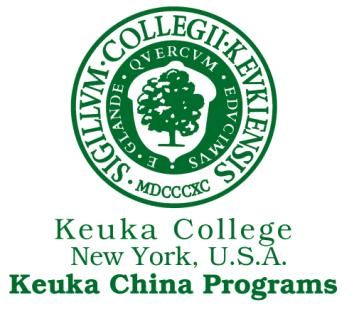

Revised on Feb. 25, 2010 15
Students’ Practicum Written Report/Summary
(At least 2 pages, including IDEA and SWOC analysis)
Instruction:I——information collection. Students shall read some related
references or material while doing practicum, or search for material from internet. D——material analysis. This requires analysis on the material selected, and comparison with practicum content.
E——evaluation. Evaluate from all aspects of practicum process, and can adopt SWOC mode for detailed analysis(S: strength, W: weakness, O: opportunity, C: challenge).A——action practicum. Please conduct related cost analysis and risk analysis according to action schedule.
Revised on Feb. 25, 2010 16
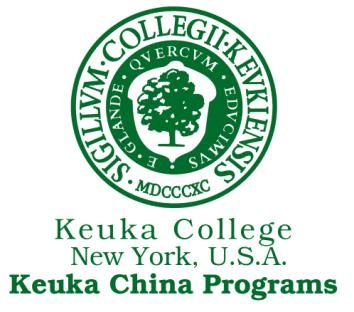
-
暑假社会实践报告 (职业体验报告)
暑假归来话收获班级:XXX姓名:XXX时间:20XX.08我是XXXX。面对再过两年就要走上社会的自己,在大学的这个暑假也开始关注…
-
职业体验报告
教育见习体验报告一体验目的1提高我们教学素质和技能2培养锻炼我们理论联系实际和分析问题解决问题的能力3使我们了解中学实际情况3使我…
-
职业体验报告
职业体验报告姓名:##学号:##班级:土木本二学院:建筑与土木工程学院体验单位:##建设有限公司体验报告正文:职业体验是我们步入社…
-
职业体验报告
这次职业体验,主要是为了走出校园,提高我的综合能力;在工作中,开阔眼界,增长见识,了解校园外的一些知识,接触不同的人和事,提高交际…
- 职业体验报告
-
职业体验报告
合肥十中高一(1)班第7组暑期职业体验活动报告体验目的这次职业体验,主要是为了走出校园,提高我的综合能力;在工作中,开阔眼界,增长…
-
职业体验报告
这次职业体验,主要是为了走出校园,提高我的综合能力;在工作中,开阔眼界,增长见识,了解校园外的一些知识,接触不同的人和事,提高交际…
-
家庭角色体验社会实践总结报告
——暑假家务活体验作者:杜通时间:20xx年x月x日【摘要】在20xx-20xx学年度暑假,我进行了以感恩父母、回报家庭为导向的家…
-
家庭角色体验社会实践总结报告
——寒假家务活体验班级:20xx级临床医学(八年制)作者:杜通时间:20xx年x月x日20xx年x月x日,我走下火车,离开家半年之…
-
家庭角色体验社会实践报告
社会实践报告院系:专业:班级:姓名:学号:实践时间家庭角色体验实践报告挥挥手告别了战火纷飞的高三,跨入陌生的大学校园,转眼已是半年…
-
职业体验报告
郑州大学职业生涯发展职业体验报告正文:这个暑假有些特别,与以往作业成堆的暑假不同,我参加了一次职业体验活动,因此把这次活动的相关情…